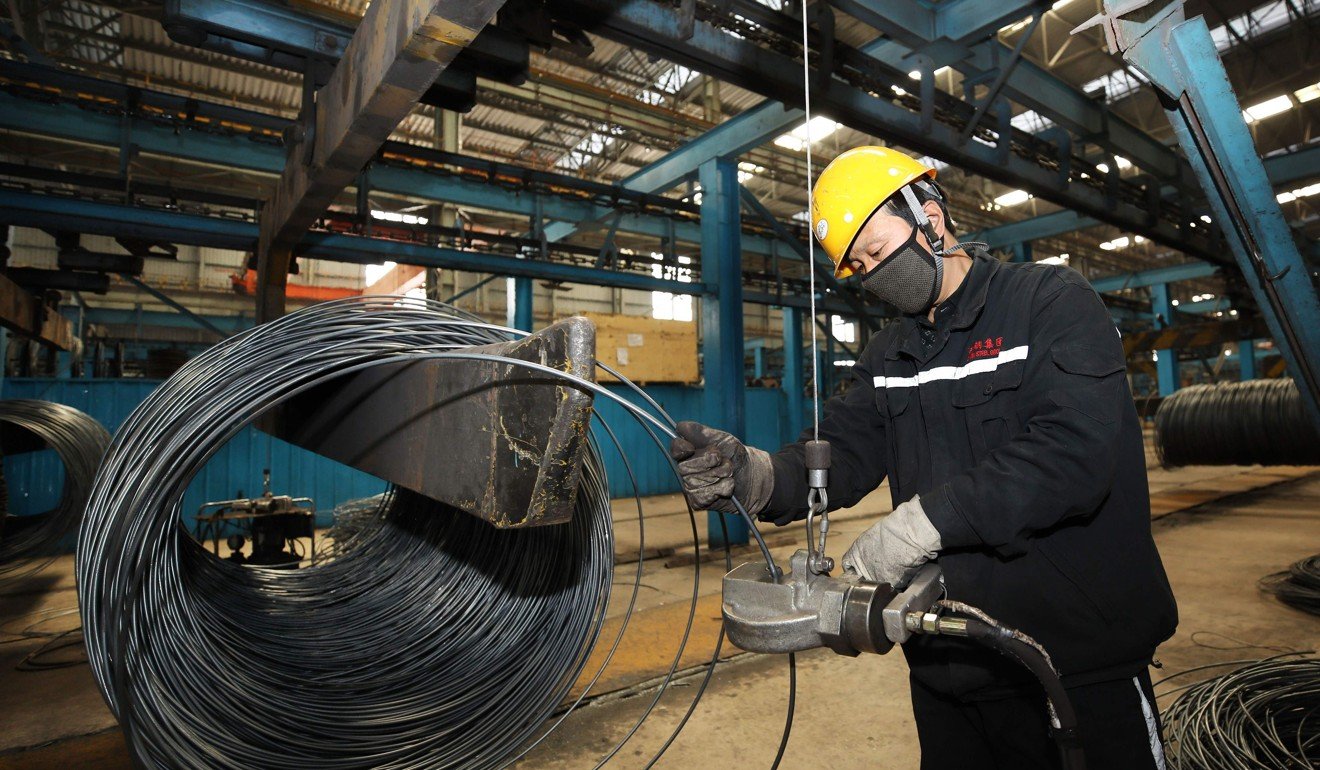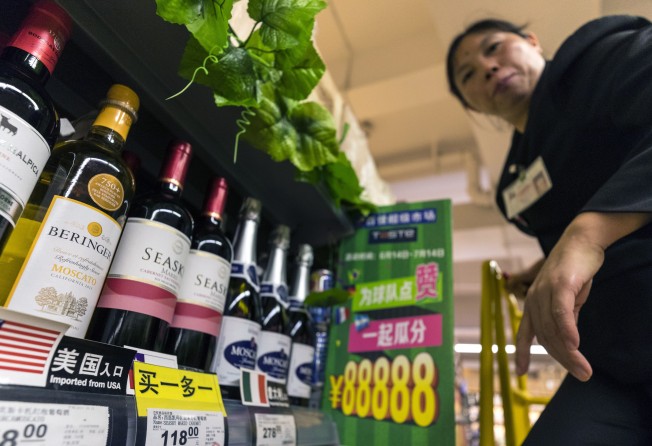
China’s factory inflation slows but consumer prices accelerate
July figures are the first official indication of impact of tariffs on US$34 billion of American imports

China’s factory price inflation cooled in July but not as much as expected, amid a wider slowdown in economic growth as Beijing remains locked in a heated trade dispute with Washington.
However, consumer inflation picked up from the previous month, largely due to a rise in non-food prices, official data showed on Thursday.
The July inflation data is the first official reading on the impact on prices from China’s retaliatory tariffs on US$34 billion of US goods that went into effect on July 6 and apply to a range of products from soybeans, to mixed nuts and whiskey.
While policymakers are watching price pressures, the central bank is likely to give priority to policies that help shore up the slowing economy.
The producer price index (PPI) – a gauge of factory gate inflation – rose 4.6 per cent in July from a year earlier, compared with an acceleration to 4.7 per cent in June, according to the National Bureau of Statistics.
On a month-on-month basis, the PPI rose by 0.1 per cent in July, compared with a 0.3 per cent growth in June.
Analysts polled by Reuters had expected July producer inflation would edge down to 4.4 per cent.
Raw material prices jumped 9.0 per cent in July from a year earlier, compared with an 8.8 per cent increase in June.

Official data on Wednesday showed China’s July import growth accelerated to its fastest since January, although the outlook for inbound shipments is clouded by the yuan’s sharp drop in recent months.
While the tit-for-tat tariffs between China and the US have fuelled worries about the inflation outlook, many analysts believe the impact on consumer prices will be limited.
The Trump administration tightened pressure for trade concessions from Beijing last week by proposing a higher 25 per cent tariff on US$200 billion worth of Chinese imports.
China in turn retaliated by proposing tariffs on US$60 billion worth of US goods, ranging from liquefied natural gas, iron ore and steel to aircraft.
Economists expect the proposed tariffs by China and the yuan’s recent decline could push up import prices, which could in turn drive producer price inflation.
“Inflation is unlikely to become much of concern for policymakers,” Capital Economics wrote in a note this week.
The consumer price index (CPI) rose 2.1 per cent from a year earlier, beating expectations of 1.9 per cent which was unchanged from June’s growth, but still within the government’s comfort zone of 3 per cent.
On a month-on-month basis, the CPI rose 0.3 per cent.
The core consumer price index, which strips out volatile food and energy prices, rose 1.9 per cent in July, unchanged from June’s pace.
The food price index rose 0.5 per cent from a year earlier, after ticking up 0.3 per cent in June. Non-food prices rose 2.4 per cent, compared with 2.2 per cent growth a month ago.
The IMF said China’s headline inflation is expected to rise gradually to around 2.5 per cent, while producer price inflation would moderate.